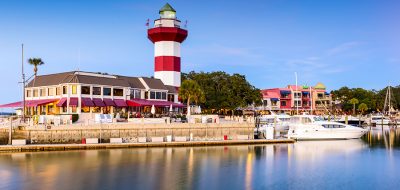By Bob Difley
It takes energy to make energy, and 10% of all the energy consumed in the US—about 100 billion gallons of oil each year–is used just growing our food. Processing and transporting all those rutabagas, feedlot steaks, and artisan breads to our table raises the figure to 17%. The Chicago Produce Terminal reports that food in America travels about 1,500 miles before you stick your fork into it. And that figure is rising as grapes arrive from Chile and apples from China.
The United Nations says that the average American is responsible for about 22 tons of carbon dioxide emissions every year, compared to six tons per person throughout the rest of the world. You can trim some of this CO2 usage by eating as many fresh, whole, unprocessed foods as possible, and buying locally produced food from local area farmers and ranchers.
As RVers, we travel to many exciting places, and the preparation and enjoyment of local foods can become a highlight of our travels. The best local foods in season will be found at farmer’s markets, farm stands, and U-Pick farms. You may find your meals getting more interesting as you try foods you’ve never tasted before. Check local chambers of commerce or tourism bureaus for a list of markets and farmers and ranchers that sell directly to the public, or online Google “farmers market” and the location.
Ask the supermarket produce manager what fruits and vegetables come from local growers and buy those. Supermarket buyers have responded to the demand for local foods. You will be pleasantly surprised at the taste of right-off-the-farm fresh fruits and vegetables. And the bonus is that a local diet of fresh produce and meals made in your RV, eliminating a lot of processed foods containing fats, additives, and sugar, will do wonders for your waistline.
Buy local. Eat fresh. Not only will you be helping to reduce carbon dioxide emissions, but also your taste buds will thank you for it.
Want More?
Lisa Smith and James MacKinnon’s book, Plenty: One Man, One Woman, and a Raucous Year of Eating Locally describes their efforts to gather all their food from within 100 miles of their Vancouver, BC apartment.
Michael Pollan’s The Omnivore’s Dilemma explores the balance between organic, local, vegetarian, and carnivores’ options.







Bob Difley
Karen-Oh yeah! Lynn and I are in Hawaii right now and we found a small farmers market that is open M-W-F just one-half mile from our condo.We walk down there in the morning, fill our backpacks with bananas, papayas, pineapples, fresh baked bread, Maui-grown greens and vegetables, strawberries, kiwis, and tomatoes,. Yesterday we bought a mahi-mahi right off the boat of a fisherman in Lahaina, barbecued it with some Maui onions while watching the sunset. Not quite totally local food, but very close to it.
Karen
I completely agree with you – just trying to convince some of the others to break out of their sterile grocery store shopping habits! 😉 There’s nothing sweet peach juice running down your chin or finding that you can buy an entire box of ripe ones for only ten dollars.
Bob Difley
Karen – The win-win situation is not only eating the best tasting food, but ALSO doing something for the local business people and helping to reduce CO2 emissions.
Karen
Even if you don’t care about the CO2 and helping the local small business people , do it for the taste! You won’t believe the difference between a just picked piece of produce and one that’s been picked unripe days earlier.
Vegasdan
Bob may be on to something here. I think it would be better if we all moved to Kansas. Why, we could buy beef, corn, beans, wheat, milk, grapes, apples-even buy cotton so we could make our own jeans. Just think how many of those bad old truckers we could cut out. Or maybe I’ll just keep going to the local store.
Bob Difley
Dan – Buying apples from China is the point–it’s ludicrous. And the only reason we do it is because it’s cheap. So those who shop only on the cheap might justify buying produce from some third world nation that enslaves its people in order to achieve cheap labor providing for cheap exports and not giving a damn for its people, the environment, or the world–just the pockets of their leader.Thanks for your comments.
Bob Difley
Chris – You got that right. It sure does taste better. And our travels enable us to try regionally grown foods. Win win. Thanks for the comments.
Chris Bryant
Personally, the CO2 issue is simply a side benefit of eating locally grown produce- it just tastes better.
Roger Morgan
Dont really care how much Co2 we use here compared to other 3rd world countries. If it wasnt for the US population other countries may not even have food to use Co2. Tired of people saying we are a country that uses to much, thats because we have the brains to invent and make life easier. Only those who think they should take what people have and give it to those that dont will cause this country to revert to look something like other countries that have to come to us when the chips are down. I worked all my life saving and now others want what i saved.
Dan Rambow
I’m not sure I follow John’s logic on numbers, first the Wikipedia list is way out of date, but even using those out of date numbers, Difley’s UN quoted numbers look close.
But, it stands to reason, that if you have a developed society, and highly evolved transportation system, your society will consum things (and food) from far distances. And most transportation systems produce CO2.
I believe what Bob is saying, is, the RV community has a unique opportunity to enjoy local foods and other goods, because we are already mobile. And as an added bonus, we cut down CO2 emmissions from the transport of that food. A very small amount, but still, it is the principal of the thing.
But I do want to ask, why apples from China? I can understand fruit and vegies from South American in our winter, but China’s apple crop is on the same calendar as New York and Washington’s apple crops, and apples keep very well. I understand, a specialty food that comes from another country, but apples? We really need to overhaul our food processing in this country if we can’t grow, process, can, ship, and sell US grown apples, cheaper than China is doing it for.
Up on my soap box here, we really need to quit eating food from China, let them send it to other parts of the world that can’t grow their own crops!
Bob Difley
I guess it makes me a liberal quack to quote the United Nations figure of 22 tones of CO2 emissions per person in the US instead of the Wikipedia figure of 20.4 tones (latest figure 2004)–a difference of 1.6 tones. Quack, Quack.
John
AS usual, the liberal quack Difley gives erroneous statistics and/or information.
To see per capita carbon dioxide emissions go here.
http://en.wikipedia.org/wiki/List_of_countries_by_carbon_dioxide_emissions_per_capita